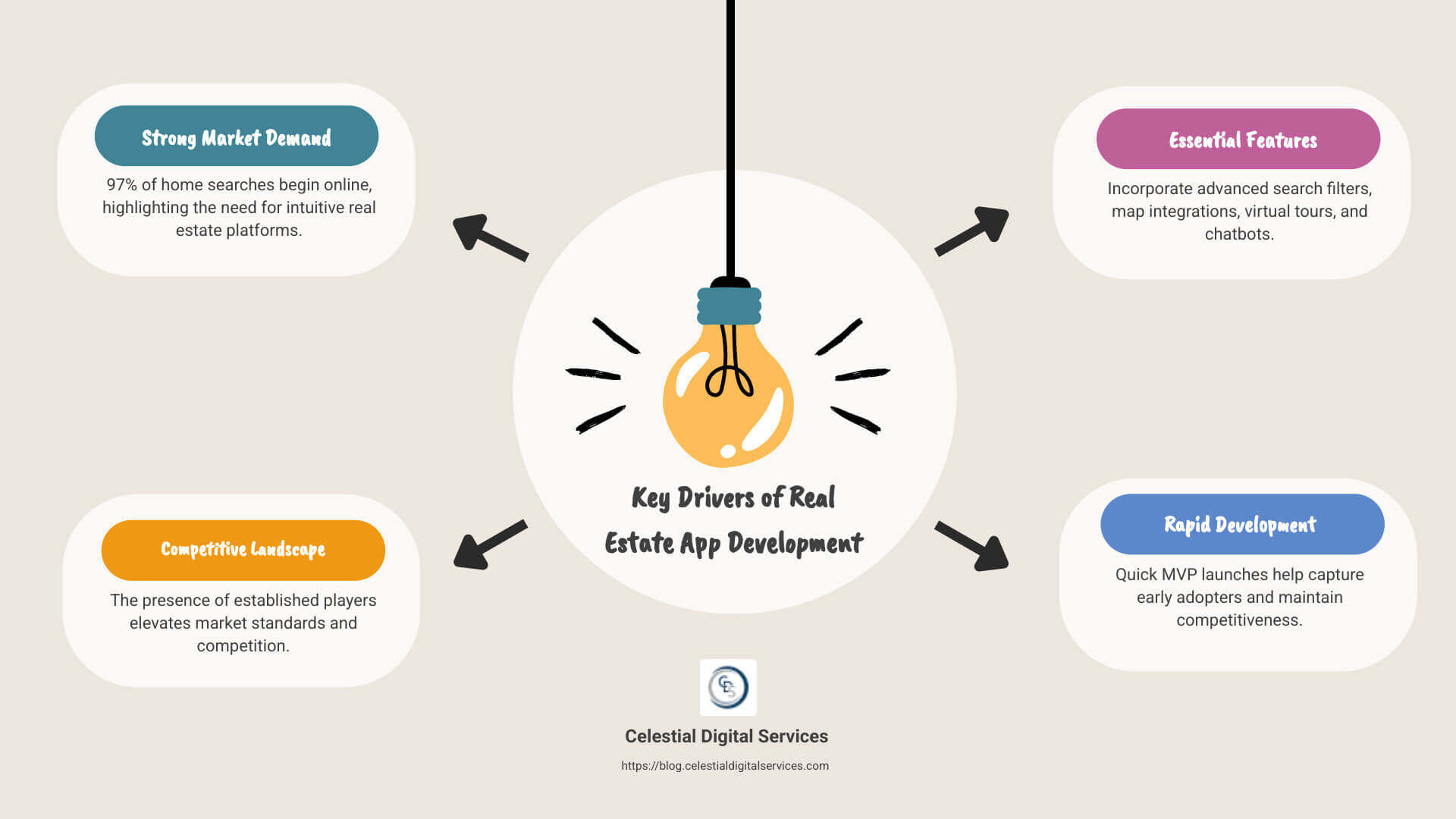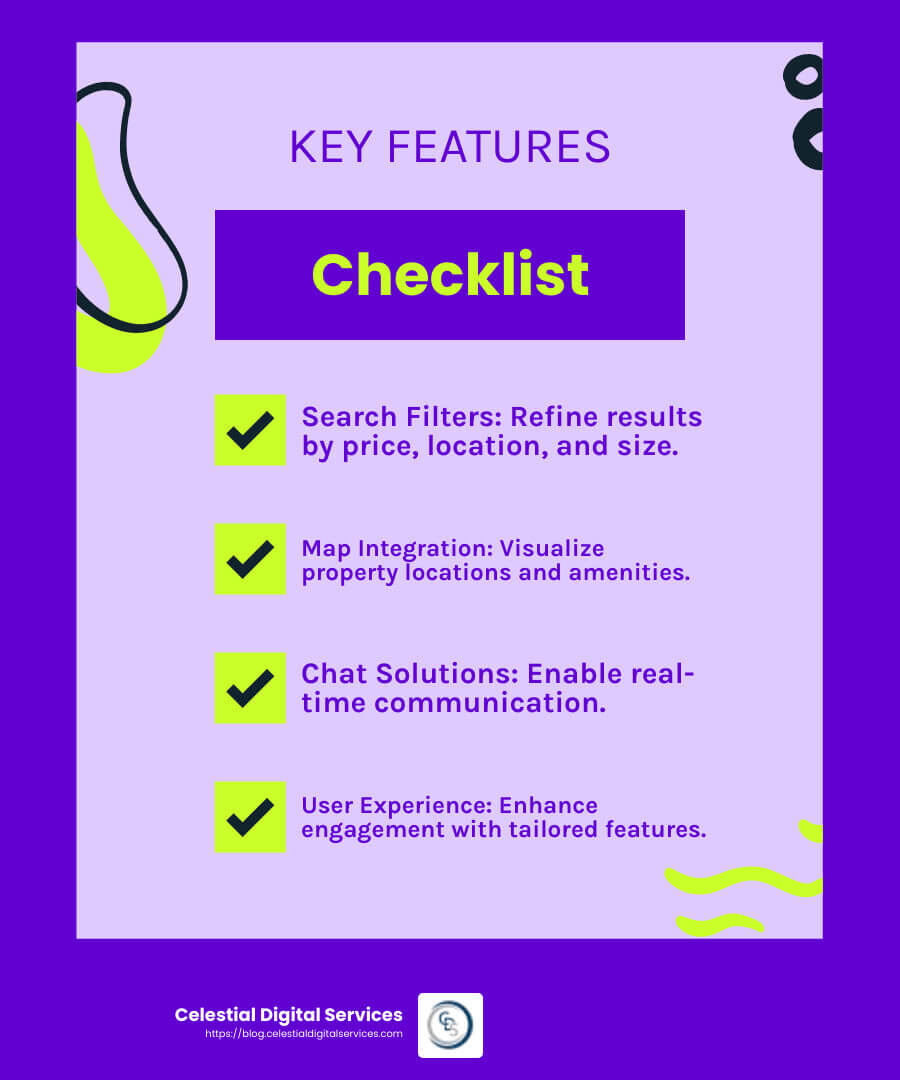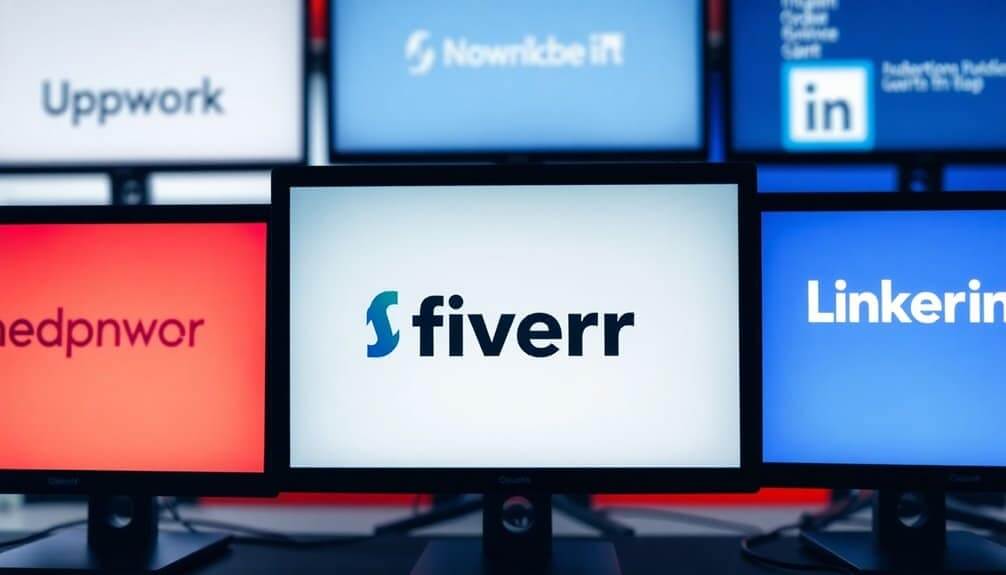Real estate app development is a booming trend in today’s tech-forward world. The surge in demand for these apps stems from several factors, including migration changes, volatile economics, and historically low mortgage rates. These trends have made real estate apps indispensable tools for buyers, sellers, agents, and investors alike. Let’s explore what drives this market:
- Strong Market Demand: With 97% of people starting their home search online, there’s an evident need for user-friendly real estate platforms.
- Competitive Landscape: The market is fiercely competitive, with high standards set by existing platforms.
- Key Features to Stand Out: Advanced search filters, map integration, and innovative features like virtual tours and chatbots are essential to capturing user interest and standing out.
- Rapid Development for Success: Launching quickly with a Minimum Viable Product (MVP) is crucial to capturing early adopters and staying competitive.
Real estate app development combines market-driven needs with tech innovation to create essential industry tools for a wide array of users.
With over a decade of experience in digital marketing strategy, particularly in real estate app development, this landscape has always intrigued me. My focus is helping businesses harness cutting-edge digital solutions to thrive in this competitive environment.

Learn more about real estate app development:
– app developers for startups
– app development for startups
Understanding Real Estate App Development
Real estate app development is not just about creating an app; it’s about crafting a solution that meets diverse user needs. From renting apps to agent tools and investment software, each type serves a unique purpose in the real estate ecosystem.
Types of Real Estate Apps
Renting Apps: These apps cater to tenants looking for rental properties. They offer features like detailed property listings, neighborhood insights, and virtual tours. The convenience of browsing available rentals from a smartphone has revolutionized how people find their next home.
Agent Apps: Designed for real estate professionals, these apps help agents manage listings, communicate with clients, and schedule viewings. They often include CRM features to keep track of client interactions and property details.
Investment Software: Investment apps empower users to explore and invest in real estate opportunities. They often support fractional investing, allowing users to own a piece of a property without a significant financial commitment. This democratizes real estate investment, making it accessible to a broader audience.
Key Features for Real Estate Apps
Search Filters: Advanced search capabilities are crucial. Users need to filter properties by price, location, size, and more. This feature ensures users find exactly what they’re looking for without sifting through irrelevant listings.
Map Integration: Maps are indispensable in real estate apps. They provide users with a visual representation of property locations and surrounding amenities. This feature is especially valuable for users unfamiliar with certain areas, offering them a better understanding of the neighborhood.
Chat Solutions: Real-time communication is key in real estate transactions. Chat solutions enable instant communication between buyers, sellers, and agents. This feature can streamline negotiations and speed up the buying or renting process.

Incorporating these features into your app can significantly improve user experience and engagement. Each feature addresses specific user needs, making the app more intuitive and effective.
By understanding the different types of real estate apps and their essential features, developers can create custom solutions that meet the market’s demands. This is crucial for standing out in a competitive landscape and delivering value to users.
Steps to Develop a Real Estate App
Creating a successful real estate app involves a series of strategic steps. Let’s explore the process, starting with defining goals, conducting market research, and building a Minimum Viable Product (MVP).
Step 1: Define Your Goals
Before diving into real estate app development, it’s crucial to pinpoint your goals. Start by identifying your target audience. Are you catering to renters, buyers, agents, or investors? Each group has unique needs and pain points.
For instance, renters might struggle with finding verified listings, while agents may need better tools to manage client interactions. Understanding these user pain points helps shape your app’s purpose.
Key Questions to Consider:
- What problem does your app solve?
- Who are the primary users?
- What unique value does your app offer?
Step 2: Market Research and Competitor Analysis
Once your goals are defined, it’s time to explore the market. Research is your best friend here. Analyze competitors to understand their strengths and weaknesses. What features do they offer? Where do they fall short?
Identifying market gaps can set your app apart. For example, if existing apps lack robust map integration, this could be your opportunity to shine.
Pro Tip: Use tools like SWOT analysis to evaluate competitors and spot opportunities.

Step 3: Building the MVP
With a clear understanding of goals and market dynamics, move on to developing the MVP. The MVP is a basic version of your app with only essential features. It’s a cost-effective way to test your concept in the real world.
Essential Features for Your MVP:
- User Registration: Simplifies onboarding and improves security.
- Property Listings: Core to any real estate app, ensuring users have access to current listings.
- Search Filters and Map Integration: These features help users find properties based on specific criteria and visualize locations.
Scalability is another critical factor. As your app gains traction, it should accommodate additional features without a complete overhaul. This forward-thinking approach saves time and resources in the long run.
By following these steps, you lay a solid foundation for your real estate app. Understanding user needs, analyzing the competition, and developing a scalable MVP are key to standing out in a crowded market.
Next, we’ll explore monetization strategies to turn your app into a profitable venture.
Monetization Strategies for Real Estate Apps
Monetizing your real estate app effectively is crucial for its success. Let’s explore some popular strategies, focusing on advertising, subscription models, and premium features.
Advertising Opportunities
Advertising is a tried-and-true method for generating revenue from apps. In the context of real estate apps, it’s important to ensure that ads are relevant to the users. Think about ads for mortgage services, home insurance, or interior decorators. These add value to the user experience rather than detract from it.
Targeted Marketing is key. By leveraging user data, you can display ads that are more likely to interest specific users. For example, displaying moving service ads to users actively searching for homes can be effective.

Subscription and Premium Models
Offering subscription models can provide a steady revenue stream. Consider providing additional features for a fee. For example, real estate agents might pay for access to detailed market analytics or demographic reports.
Premium Features can improve user experience and cater to specific needs. For instance, offering virtual tours as a premium feature can attract users who want a more immersive experience in property viewing.
User Benefits of premium models should be clear. Subscribers should feel they receive significant value for their payment, such as exclusive access to new listings or advanced search capabilities.
Key Points for Subscription Models:
- Value Proposition: Ensure the benefits are clear and compelling.
- Pricing Strategy: Consider different tiers to cater to various user needs.
- User Engagement: Regularly update features to keep subscribers interested.
By implementing these monetization strategies, real estate apps can not only cover development costs but also generate profits. The right mix of advertising and premium offerings can improve user satisfaction and ensure long-term success.
Next, we’ll dive into frequently asked questions about real estate app development, addressing common concerns and misconceptions.
Frequently Asked Questions about Real Estate App Development
How do real estate apps make money?
Real estate apps can make money in several ways, with in-app purchases and sponsored listings being popular choices.
In-app purchases provide users with extra features or content for a fee. For instance, users might pay for advanced search filters or access to exclusive property listings. This model works well when users see clear value in the additional features.
Sponsored listings are another effective strategy. Property owners or real estate agents can pay to have their listings appear at the top of search results. This not only increases visibility for the sponsors but also generates revenue for the app.
Both methods focus on enhancing the user experience while generating income. It’s about finding the right balance between monetization and user satisfaction.
How much does it cost to build an app like Zillow?
Building an app like Zillow involves several cost considerations. The development cost can vary widely based on the feature complexity and the team you hire.
Feature complexity plays a significant role in determining the cost. Basic apps with simple search functionalities might cost less, while apps with advanced features like virtual tours, AI-driven recommendations, or complex integrations can be much more expensive.
Typically, developing a comprehensive real estate app can range from $80,000 to $250,000. This includes expenses for design, development, testing, and initial launch. It’s crucial to plan your budget carefully and prioritize essential features for the initial version.
Are real estate apps worth it?
Investing in a real estate app can be highly beneficial. The investment benefits include reaching a wider audience, streamlining operations, and enhancing user engagement.
User accessibility is another major advantage. Real estate apps allow users to search for properties, connect with agents, and even make transactions from their mobile devices. This convenience can significantly boost user satisfaction and loyalty.
Moreover, the growing demand for digital solutions in real estate means there’s a substantial market opportunity. By offering a well-designed and user-friendly app, you can stand out in the competitive landscape and potentially achieve significant returns on your investment.
In the next section, we’ll explore how Celestial Digital Services can help you steer the complexities of real estate app development and improve your online presence.
Conclusion
Navigating the complexities of real estate app development can be daunting, but with the right partner, it becomes a manageable and rewarding journey. At Celestial Digital Services, we are committed to helping you transform your app idea into a reality that improves your online presence and meets the needs of your target audience.
Digital solutions are at the core of what we offer. From comprehensive mobile app development to custom digital marketing strategies, we ensure that startups and local businesses thrive in the competitive online landscape. Our approach is centered on empowering small enterprises with innovative tools and services that simplify digital marketing and improve user engagement.
By leveraging our expertise, you can build a real estate app that not only meets industry standards but also exceeds user expectations. Our team assists you every step of the way, from defining your goals and conducting market research to developing a scalable Minimum Viable Product (MVP) and implementing effective monetization strategies.
Improving your online presence is crucial in today’s digital age. With a well-designed real estate app, you can reach a wider audience, streamline operations, and foster stronger connections with clients. This not only improves your market position but also drives growth and success in the real estate sector.
Ready to take the next step in your real estate app journey? Learn more about how Celestial Digital Services can support you and explore our range of services designed to lift your business. Let’s work together to create a digital solution that stands out in the real estate market.



